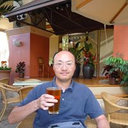Incidence of adverse reactions associated with acupuncture.
Keywords
Abstract
OBJECTIVE
To determine the type, severity, and incidence of acupuncture adverse reactions that are observed in standard practice.
METHODS
A survey based on observation and interview by the therapists.
METHODS
Tsukuba College of Technology Clinic in Japan.
METHODS
All patients who underwent acupuncture treatment during a period of 4 months from April to July 1998.
METHODS
Type, severity, and incidence of acupuncture adverse reactions.
RESULTS
A total of 391 patients were treated in 1,441 sessions, involving a total of 30,338 needle insertions. The incidence of recorded systemic reactions in individual patients was: tiredness (8.2%); drowsiness (2.8%); aggravation of preexisting symptoms (2.8%); itching in the punctured regions (1.0%); dizziness or vertigo (0.8%); feeling of faintness or nausea during treatment (0.8%); headache (0.5%); and chest pain (0.3%). The incidence of recorded local reactions, expressed as a percentage of needle insertions, was: minor bleeding on withdrawal of the needle (2.6%); pain on insertion of the needle (0.7%); petechia or ecchymosis (0.3%); pain or ache in the punctured region after the treatment (0.1%); subcutaneous haematoma (0.1%); and pain or discomfort in the punctured region during the needle retention (0.03%).
CONCLUSIONS
Although some adverse reactions associated with acupuncture were common even in standard practice, they were transient and mild compared to cases such as pneumothorax, cardiac injury, infection, or spinal lesions reported in other studies.


